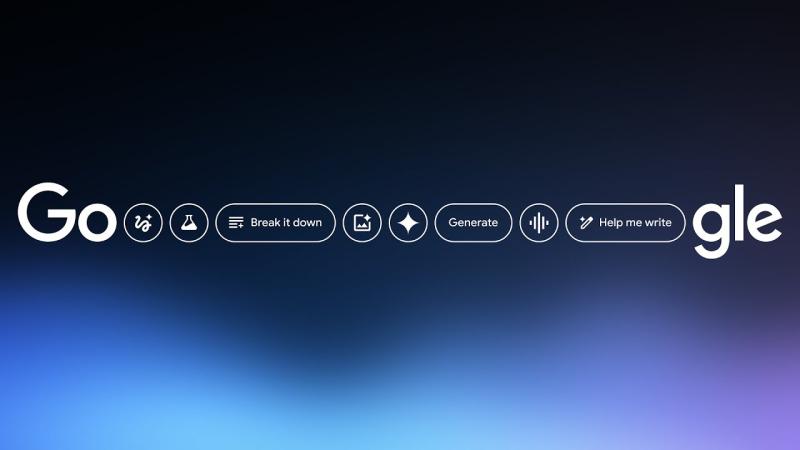Is Gemini In Chrome A Sign Of Google's Agentic Era?

Table of Contents
Understanding "Agentic AI" and its Implications
What exactly constitutes "agentic AI"? It's more than just a sophisticated chatbot; it's about AI systems exhibiting a level of autonomy previously reserved for human intelligence. Agentic AI involves systems capable of independent goal-setting and action-taking, moving beyond simple reactive responses to commands. This represents a significant leap from reactive AI, which simply responds to inputs without proactively seeking solutions or initiating actions.
- Examples of Agentic AI Capabilities:
- Proactive problem-solving: Identifying and addressing potential issues before they escalate.
- Autonomous decision-making: Making choices and taking actions based on learned information and goals.
- Goal-oriented behavior: Pursuing defined objectives without constant human intervention.
- The Difference: Reactive AI is like a calculator; you input data, and it provides an output. Agentic AI, however, is more akin to a project manager – it understands the project, anticipates challenges, and takes initiative to ensure success. The development of Artificial General Intelligence (AGI), a hypothetical AI with human-level cognitive abilities, heavily relies on achieving true agentic capabilities.
Gemini's Capabilities and its Integration into Chrome
Google's Gemini is a multimodal AI, meaning it can process and understand various types of information, including text, images, and code. Its core features include advanced large language model (LLM) capabilities, enabling complex reasoning and nuanced responses. The integration of Gemini into Chrome is still unfolding, but it's clear Google aims for seamless interaction.
- Gemini's functionalities in Chrome (potential): We can expect to see Gemini powering improved search functions, smart assistance features, and potentially even personalized automation within the browser. The exact extent of Chrome's integration may depend on the rollout of new extensions and updates to the core browser functionality.
- User Experience: Early access and developer previews suggest a user-friendly experience, but the true impact on user workflows will become clearer as Gemini’s capabilities are further integrated into the Chrome ecosystem.
Analyzing Google's Strategic Shift Towards Agentic AI
Google’s massive investments in AI research and development are undeniable. The launch of Gemini isn't just a product release; it's a strategic maneuver in a fiercely competitive AI landscape. Companies like OpenAI (with its ChatGPT and GPT-4) and Microsoft are strong competitors, pushing the boundaries of AI capabilities and market penetration.
- Google's AI Investments: Google's commitment to AI is evident in its research labs, acquisitions, and substantial financial resources devoted to advancing the field. The development and deployment of Gemini represents a significant milestone in this ongoing endeavor.
- Long-Term Goals: Google's long-term strategy likely involves leveraging Gemini's agentic potential across multiple sectors—from search and advertising to healthcare and manufacturing—establishing itself as a dominant force in the future of AI-powered services.
Potential Ethical and Societal Implications of Agentic AI in Chrome
The rise of agentic AI, particularly its integration into a widely used platform like Chrome, brings forth crucial ethical and societal considerations.
- Bias and Fairness: Agentic AI systems, trained on vast datasets, can inherit and amplify existing societal biases, potentially leading to unfair or discriminatory outcomes. Mitigating these biases requires rigorous testing and ongoing refinement.
- Privacy Concerns: The increased data collection and processing required by agentic AI raise significant privacy concerns. Transparency and robust data protection measures are paramount.
- Job Displacement: The automation capabilities of agentic AI raise concerns about potential job displacement across various industries. Addressing this challenge requires proactive measures such as workforce retraining and societal adaptation.
Conclusion: Gemini, Chrome, and the Future of Agentic AI at Google
The integration of Gemini into Chrome certainly represents a significant step forward for Google's AI capabilities. While it may not fully mark the arrival of a fully "agentic era" just yet, it undeniably pushes the boundaries of what's possible. The evidence suggests Google is strategically positioning itself for a future dominated by powerful, proactive AI systems. However, careful consideration must be given to the ethical and societal implications that accompany such advancements. The future of AI is being shaped now, and the role of Gemini in Chrome is a crucial piece of that evolving landscape. Share your thoughts on whether Gemini in Chrome truly represents a turning point in Google’s approach to Agentic AI. Let's discuss the future of AI in the comments below!

Featured Posts
-
 Aulnay Sous Bois Le Maire Demande La Non Verbalisation Des Commercants Le 1er Mai
May 27, 2025
Aulnay Sous Bois Le Maire Demande La Non Verbalisation Des Commercants Le 1er Mai
May 27, 2025 -
 Robert F Kennedy And Mlk Assassination Files Imminent Release
May 27, 2025
Robert F Kennedy And Mlk Assassination Files Imminent Release
May 27, 2025 -
 Ashton Kutchers Job Mila Kuniss Extreme Preparation Involved Grapes And Hospital Visits
May 27, 2025
Ashton Kutchers Job Mila Kuniss Extreme Preparation Involved Grapes And Hospital Visits
May 27, 2025 -
 Is Hemp Legal In Georgia A Guide To Current Regulations And Available Products
May 27, 2025
Is Hemp Legal In Georgia A Guide To Current Regulations And Available Products
May 27, 2025 -
 Is Tracker On Tonight Season 2 Episode 19 Premiere Time And Melissa Roxburghs Return
May 27, 2025
Is Tracker On Tonight Season 2 Episode 19 Premiere Time And Melissa Roxburghs Return
May 27, 2025
